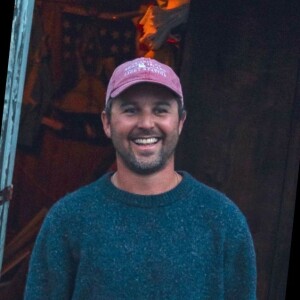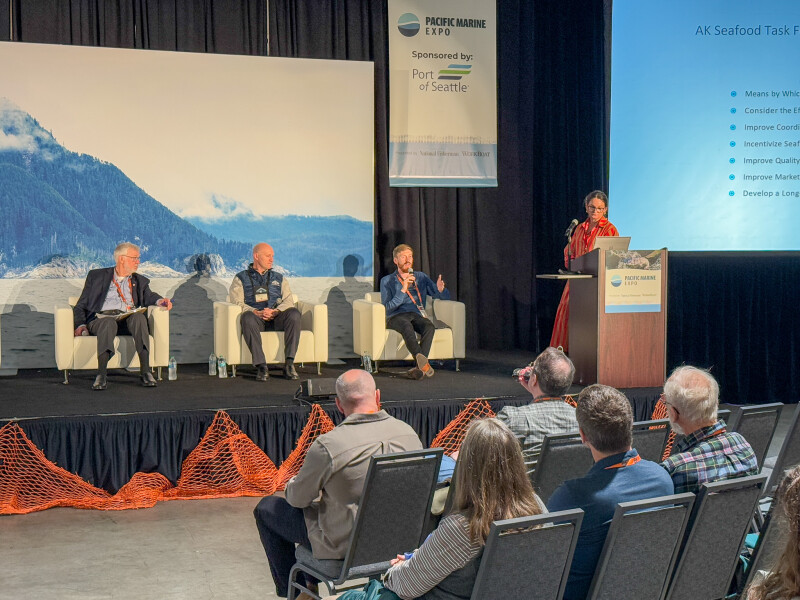The state of Alaskan fisheries was discussed at this year’s Pacific Marine Expo. The panel featured Senator Gary Stevens, president of the Alaska State Senate, Jeremy Woodrow, executive director of Alaska Seafood Marketing Institute, and Nels Ure, deputy director of Commercial Fishermen for Bristol Bay.
Senator Stevens began the discussion, highlighting the Alaska Seafood Task Force, comprised of four senators and four representatives, which was established to address industry challenges. “We’re facing enormous problems in the state of Alaska right now in the fishing industry,” Stevens said. “We will introduce legislation in mid-January, which will then go through committees in both the House and Senate,” he noted, emphasizing the importance of finding solutions for fishermen, processors, marketers, and impacted communities.
Stevens highlighted difficulties faced in communities like King Cove and the Pibilofs that have lost their processing capabilities. To combat these issues, the task force is exploring incentives for innovation, improved marketing, and tax credits for value-added equipment. “Processors, fishermen, and communities are all in the same boat,” Stevens said, underlining the need for collaboration.
Jeremy Woodrow of ASMI discussed Alaska’s position in the global seafood market. He stressed the importance of capitalizing on opportunities created by the U.S. ban on Russian seafood imports, which has opened a $450 million market gap. “This is our number one opportunity right now, to sell more Alaska seafood to more Americans,” Woodrow said.
He also discussed the need for diversification in international markets. “While 70% of our seafood by value is exported overseas, we need a diverse customer base to mitigate risks like tariff wars and currency fluctuations,” he said.
Addressing short-term challenges, Woodrow pointed to inflation and high interest rates, which have made operating costs prohibitive for harvesters and processors alike. He emphasized the need for affordable lending options that would provide immediate relief.
The panel also touched on sustainability and certification, which are key to market access and consumer trust. Woodrow introduced the Responsible Fisheries Management (RFM) program as a robust certification option, noting that it has expanded beyond Alaska to serve fisheries worldwide.
Nelson Ure highlighted the importance of protecting salmon habitats, which are the foundation of a successful fishery.
Ure addressed the long-standing battle over the Pebble Mine project, highlighting its threat to one of the planet’s last robust sockeye salmon runs in Bristol Bay. Senator Stevens quickly agreed. “I think we've got a stake through the heart of Pebble Mine. Maybe not, maybe we’ll still be fighting that. But the issue there is, why would you ever give a sustainable renewable resource like fish in order to have a short-term gold mine or silver mine? Why would you ever do that,” he said.
While recent victories, such as the Army Corps of Engineers denying a permit for Pebble Mine in 2022, and EPA 404(c) protections in 2023 represent significant milestones, challenges remain, Nels noted. The project's backers have launched lawsuits seeking to overturn these protections, reminding stakeholders that the fight is not over. Efforts to secure permanent protections for Bristol Bay are ongoing.
Nels noted, “If we lose Bristol Bay, we lose a lot—not just as fishermen or industry professionals, but as Alaskans.”







